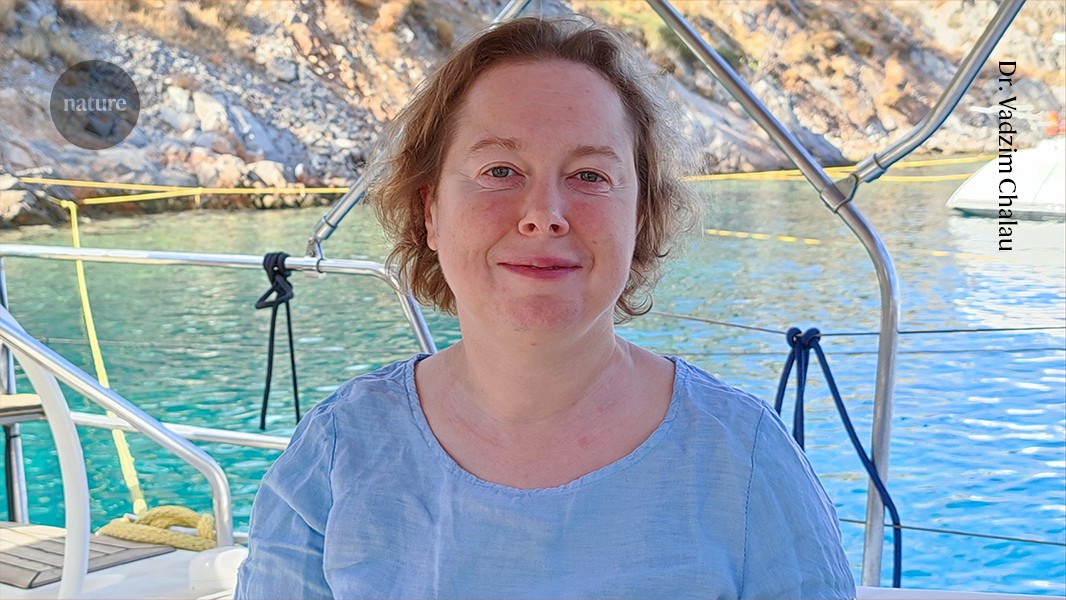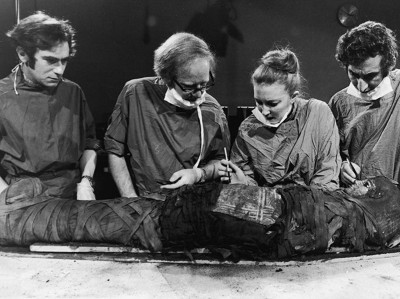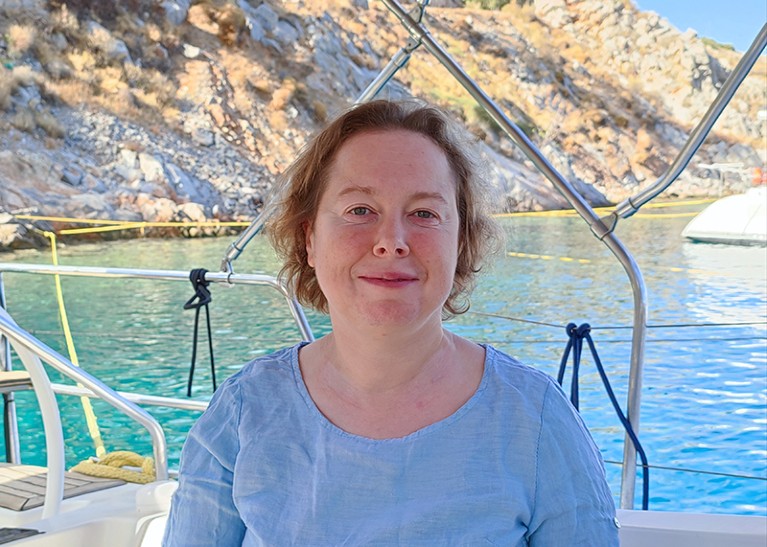
Victoria Doronina is a member of the Wikimedia Foundation Board of Trustees.Credit: Dr. Vadzim Chalau
Victoria Doronina was a biology research associate in the mid-2000s when she started to become active on Wikipedia, adding to and improving pages on the Russian-language version of the online encyclopaedia.
In 2006, five years after Wikipedia’s launch, she became an administrator, after successfully completing a nomination and voting process. An admin goes beyond editing to manage pages across the site using special permissions, such as the ability to rename pages (see ‘Wikipedia made simple’ and ‘Wikipedia by the numbers’).
Four years ago Doronina, who now works as a technical officer at Manchester Metropolitan University, UK, was elected to become a member of the Wikimedia Foundation Board of Trustees. The Wikimedia Foundation is a non-profit organization, registered in the United States and based in San Francisco, California, that is responsible for Wikipedia and related projects. The foundation’s trustees oversee its work.
A standard question as part of the selection process was whether she had experience of living in a repressive regime. She did, being from Belarus and living there until 1998, but Doronina didn’t understand why it was relevant.
After running for re-election in 2024, she understood why. A Russian alternative to Wikipedia, the government-funded Great Russian Encyclopedia, had shut down, following controversies that included what content should be included in scientists’ biographies, which might have contributed to it losing government funding.
Two years earlier, the Belarusian government imprisoned human-rights activist Pavel Alexandrovich Pernikaŭ for his Wikipedia edits about human-rights abuses. When Doronina made her pitch for re-election, she mentioned both her experience of “living in a totalitarian regime” and her scientific experience (including a PhD in molecular biology from the University of Edinburgh, UK, which she gained in 2001), as providing a useful perspective.
Scientist contributions
A 2018 survey of more than 4,000 Wikipedians (as the site’s editors are called) found that 12% had a doctorate. Scientists made up one-third of the Wikimedia Foundation’s 16 trustees, according to Doronina.
Although Wikipedia is the best-known project under the Wikimedia umbrella, there are other ways for scientists to contribute besides editing Wikipedia pages. For example, an entomologist could upload photos of little-known insect species to Wikimedia Commons, a collection of images and other media. A computer scientist could add a self-published book to the digital textbook site Wikibooks. Or a linguist could explain etymology on the collaborative dictionary Wiktionary. All of these are open access, a key part of Wikimedia’s mission.
Although Wikipedia’s structure might seem daunting for new editors, there are parallels with academic documents.
For instance, Jess Wade, a physicist at Imperial College London, who focuses on creating and improving biographies of female scientists and scientists from low- and middle-income countries, says that the talk page, which is the behind-the-scenes portion of a Wikipedia page on which editors discuss how to improve it, is almost like the peer-review file of an academic paper.
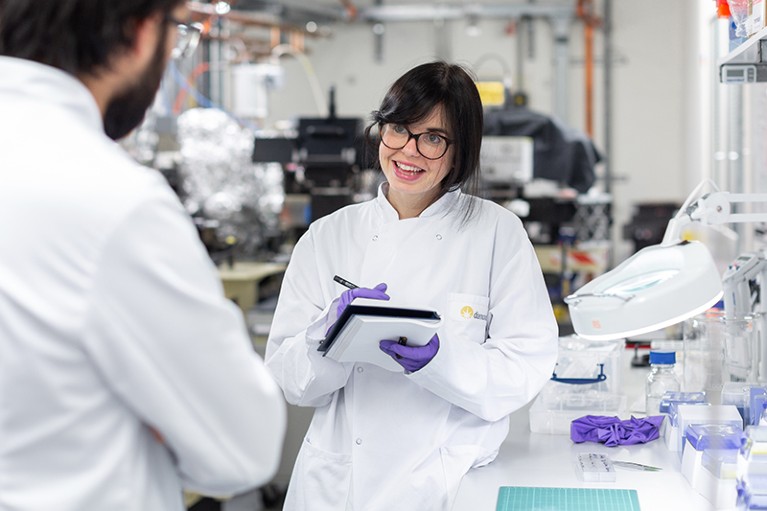
Jess Wade, a physicist at Imperial College London, creates and edits biographies of female scientists.Credit: Thomas Angus, Imperial College London
Well-informed Wikipedians are especially valuable in certain areas, and a key gap is content about and specific to women, says Wade. But addressing this isn’t always straightforward. To create a new Wikipedia biography, the person has to be deemed notable. But even when women meet the criteria for notability, their pages are nominated for deletion more often than are men’s.
And even if Wikipedia pages already exist for people from under-represented groups, Wade says, “their pages are usually shorter and have less technical detail, and are more focused on personal life”.
The gender gap extends to pages about women’s health. Doronina has seen plenty of misinformation about topics such as menopause. This is partly related to the disproportionate number of men contributing to Wikipedia. One study of the Spanish-language Wikipedia found that women made up around 11.6% of editors2. But the disparity also reflects the insufficiency of the source material, including scientific publications on women’s health. “If there is a gap in scientific literature, you cannot write a high-quality article,” Doronina says. “It’s a feedback cycle.”
Why we’re editing women scientists onto Wikipedia
There’s also a particular need for input for language versions that have small editing communities. Doronina says that the small group of contributors for such versions of Wikipedia have more power than do members of large communities.
Prashanth Nuggehalli Srinivas, director of the Institute of Public Health in Bengaluru, an Indian non-profit organization, occasionally contributes to Wikipedia in Kannada, an official language of the Indian state Karnataka, but there is little information on the Kannada-language Wikipedia overall. Language remains a barrier to increasing the representation of academics from low- and middle-income countries, Srinivas says.
Even languages spoken in a number of countries can be poorly supported on Wikipedia. Vinicius Siqueira Tavares Meira Silva is a primary-care physician and a PhD student at the Oswaldo Cruz Foundation’s Sergio Arouca National School of Public Health in Rio de Janeiro, Brazil. He used to frequently translate articles from English Wikipedia to the Portuguese version. But translation started to feel insufficient. Siqueira says that his current interest, Brazilian public health, often doesn’t have entries on non-Portuguese Wikipedia sites, creating a need for original articles in Portuguese.
Public good
“Wikipedia articles should be based on the most reliable independent sources, and scientists seem to have a good understanding of what constitutes a reliable source within a particular field,” says Stephen Harrison, a journalist based in Dallas, Texas, who has carved out a niche writing about Wikipedia, and in 2024 published The Editors, a thriller based on the platform.
Health and medicine are particularly important areas for specialist contributors. WikiProject Medicine, a Wikipedia community focusing on medicine that launched in 2004, has more than 100 active members, including physicians, medical students and researchers. But Srinivas strikes a note of caution, warning: “While Wikipedia is such an amazing place for health-related information, by design it is not vetted by doctors.”
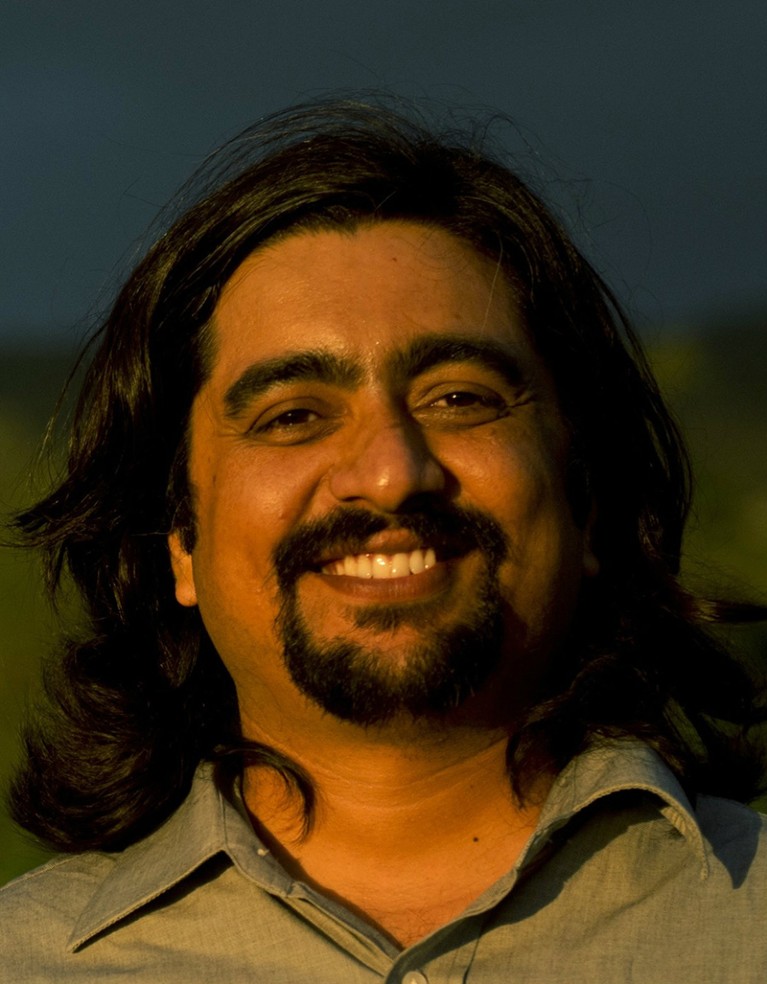
Prashanth Nuggehalli Srinivas encourages academics to introduce Wikipedia to their students when teaching critical-thinking skills.Credit: Prashanth N S
Siqueira and other Wikipedians stress that scientific expertise can definitely help to inform Wikipedia content, but ultimately contributions matter more than credentials, and it should be an egalitarian rather than an elite project. Beyond scientists, “it will be much more revolutionary if we have people from all groups committed to this work,” Siqueira emphasizes. The Wikimedia Foundation provides access to scientific journals to users with a certain level of activity, so that more editors can translate scientific publications for mass audiences. Overall, Wikipedia’s generalist editors tend to prefer systematic reviews or meta-analyses rather than primary research. “They don’t want to be dazzled by some obscure reference,” Srinivas adds.
There can be cross-benefits of Wikimedia activity and a scientific job. Doronina says that her conference organizing skills were refreshed by her role on the Wikimedia Foundation’s Board. And Wade says that practising writing neutral, jargon-free text is a useful exercise for scientists in general.
More broadly, “Wikipedia to me is particularly exciting because it spans partisan divides,” Wade comments. “From an information-sharing perspective, there’s very few places like that any more.”
Caution
However, scientists have their own biases about aspects such as how to classify certain topics. This matters, Harrison says, because “Wikipedia is intended to be a general-purpose encyclopaedia instead of a scientific encyclopaedia.”
One example is a long-standing battle over Wikipedia pages on cryptids and folklore creatures such as Bigfoot. Labels such as ‘pseudoscience’ have angered cryptid enthusiasts and raised questions about different types of knowledge. One suggestion is for the pages to feature a disclaimer that says that a topic is not accepted by mainstream science.
Wade raises a point about resourcing, saying it’s especially difficult for the platform to retain academics who might be enthusiastic about editing Wikipedia initially, but then drop off. One reason is time. For full-time researchers, Wikipedia editing could be an activity best left to evenings, weekends and holidays.


